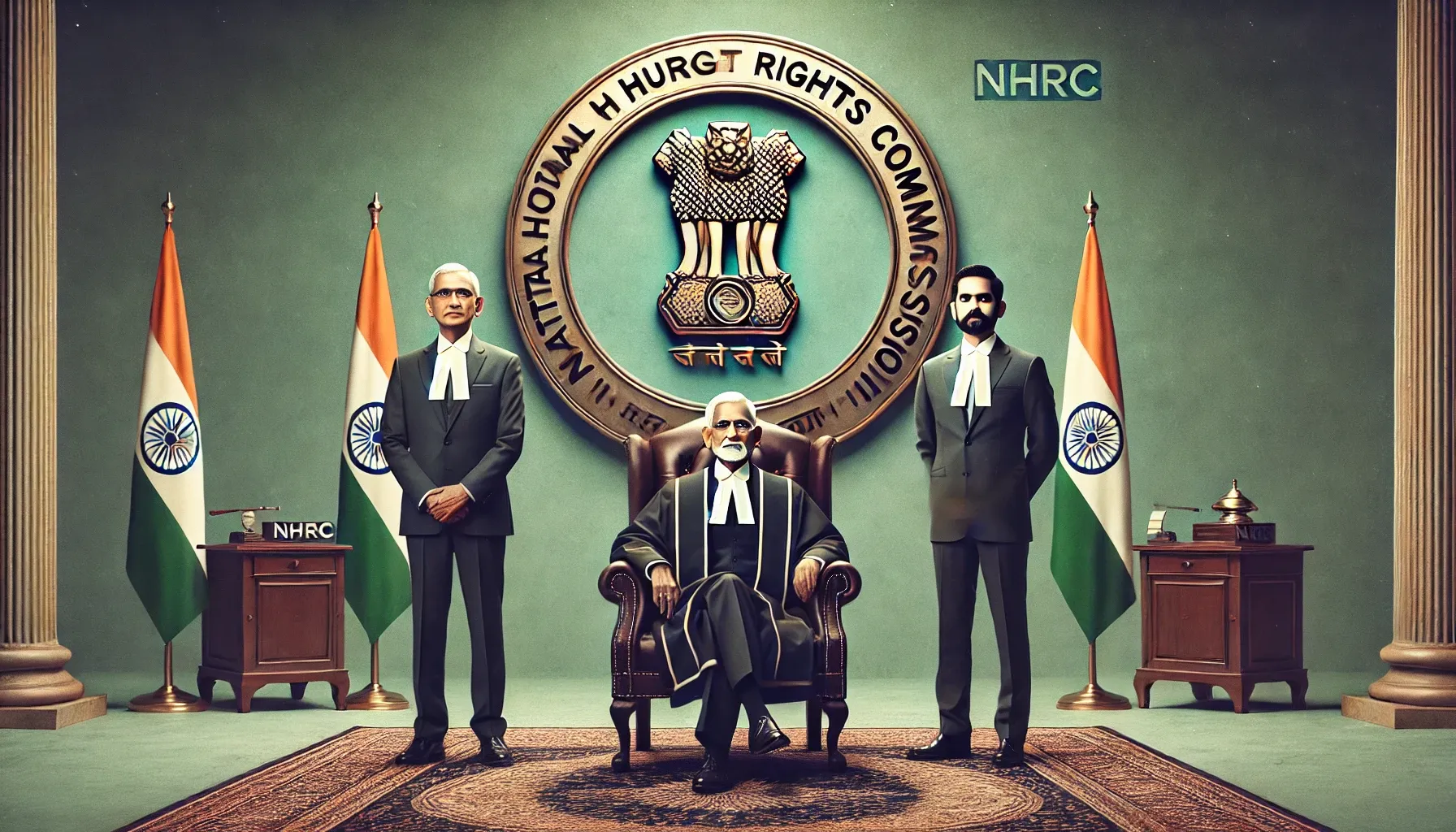Shri Justice V. Ramasubramanian, former Supreme Court judge, has assumed charge as the Chairperson of the National Human Rights Commission (NHRC), with Justice (Dr.) Bidyut Ranjan Sarangi and Shri Priyank Kanoongo joining as members.

In a significant development, Shri Justice V. Ramasubramanian, former judge of the Supreme Court of India, has assumed the role of Chairperson of the National Human Rights Commission (NHRC). Alongside him, Justice (Dr.) Bidyut Ranjan Sarangi, former Chief Justice of Jharkhand High Court, and Shri Priyank Kanoongo, former Chairperson of NCPCR, have joined as members. These appointments, made by the Hon’ble President of India, Smt. Draupadi Murmu, on 21st December 2024, mark a new chapter for the Commission in its mission to promote and protect human rights.
The Appointment Ceremony
Welcoming the New Leadership
- The official ceremony, held on 30th December 2024 in Delhi, was attended by Acting Chairperson Smt. Vijaya Bharathi Sayani, Secretary General Shri Bharat Lal, and other senior officers and staff of the Commission.
- In his address, Justice Ramasubramanian emphasized India’s ancient tradition of human rights, citing Tamil poet Thiruvalluvar: “Human rights are deeply embedded in India’s cultural fabric.” He stressed the need for a collaborative approach among stakeholders to uphold these rights.
Profiles of the Appointees
Justice V. Ramasubramanian – Chairperson, NHRC
- Early Life and Education: Born on June 30, 1958, in Mannargudi, Tamil Nadu, he pursued B.Sc. in Chemistryfrom Ramakrishna Mission Vivekananda College, Chennai, and law from Madras Law College.
- Judicial Career:
- Practised law at the Madras High Court for 23 years before being appointed as an Additional Judge in 2006 and a Permanent Judge in 2009.
- Transferred to the Telangana High Court post bifurcation in 2016.
- Served as Chief Justice of Himachal Pradesh High Court in 2019 before being elevated to the Supreme Court of India, where he authored 102 landmark judgments, including the 2016 Demonetization case.
- Retired on June 29, 2023, after a distinguished judicial career spanning decades.
Justice (Dr.) Bidyut Ranjan Sarangi – Member, NHRC
- Early Life and Education: Born on July 20, 1962, in Nayagarh, Odisha, he holds LL.B. and LL.M. degrees from M.S. Law College, Cuttack, and a Ph.D. in Law from Sambalpur University.
- Judicial Achievements:
- Appointed as Permanent Judge of the Orissa High Court in 2013, where he disposed of over 152,000 cases and authored 1,500 judgments.
- Elevated as Chief Justice of Jharkhand High Court in July 2024.
- Contributions: Actively participated in legal services authorities, juvenile justice committees, and national legal organizations.
Shri Priyank Kanoongo – Member, NHRC
- Background: A native of Vidisha, Madhya Pradesh, with a B.Sc. in Microbiology.
- Leadership in Child Rights:
- Served as Chairperson of the National Commission for Protection of Child Rights (NCPCR) for two terms (2018–2024).
- Advocated for "Indian solutions to Indian problems", emphasizing culturally relevant child welfare systems.
- Notable Contributions:
- Launched initiatives regulating OTT platforms to protect children.
- Authored over 100,000 resolved complaints and published the book Pinjra-The Cage, exploring children’s lives in care institutions.
Vision and Future Goals
Justice V. Ramasubramanian’s Focus
- Promoting inclusive human rights policies rooted in India’s cultural and historical values.
- Enhancing collaboration among stakeholders, including civil society, government bodies, and the judiciary, to safeguard human rights.
- Justice Sarangi and Shri Kanoongo’s expertise in law and child welfare are expected to bring a multifaceted approach to addressing critical human rights issues.
Source: Press Release, Press Information Bureau





